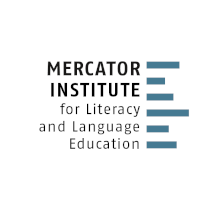Language proficiency assessment methods in preschool education
To give all children the best possible start to their school careers, they must receive the specific language support they need at the earliest possible age. Alarmed by the results of the PISA studies and the resulting debate about the educational disadvantages suffered by children of migrant origin, 14 of Germany’s federal states put systems in place between 2002 and 2008 to assess the language proficiency of four- to five-year-olds and to enable appropriate language support measures to be implemented before children start school.
The methods of testing that are used vary considerably, however: 21 different assessment tools were in use Germany-wide in 2013, the proportion of children receiving support ranging from ten to 50 percent from one federal state to another. The goal of ensuring targeted, scientifically sound and comparable language support is hardly ever achieved, or is achieved only to an insufficient extent.
By developing quality criteria and using these criteria to evaluate the assessment tools in use, the Mercator Institute’s goal is to contribute to greater comparability and review of the methods.
In a first step in spring 2013, an interdisciplinary commission of experts chaired by the Mercator Institute and comprising representatives of the relevant subject areas drew up a catalogue of criteria containing 32 quality criteria in ten fields of action. For each criterion, the point at which a method of language proficiency assessment meets the criterion to an adequate, good or very good extent is clearly defined. The catalogue was publicized in May 2013.
It was then checked in a follow-up study whether and to what extent the language proficiency assessment methods in use meet these quality criteria. It was found that only eight of the 21 language proficiency assessment methods in use Germany-wide meet more than 16 of the 32 scientific quality criteria. The findings were presented at a symposium in November 2013.
At a glance
Objective | By developing quality criteria and using these criteria to evaluate the assessment tools in use, the Mercator Institute’s goal is to contribute to greater comparability and review of the methods. |
|---|---|
Partners | Prof. Dr. Dr. h. c. Konrad Ehlich, Freie Universität Berlin Prof. Dr. Iris Füssenich, Ludwigsburg University of Education Prof. Dr. Hartmut Günther, University of Cologne Prof. Dr. Marcus Hasselhorn, German Institute for International Educational Research (DIPF) Dr. Michaela Hopf, German Youth Institute (DJI) apl. Prof. Dr. Stefan Jeuk, Ludwigsburg University of Education Prof. Dr. Drorit Lengyel, Hamburg University Prof. Dr. Argyro Panagiotopoulou, University of Cologne Prof. Dr. Petra Stanat, Institute for Quality Development in Education (IQB) Prof. Dr. Jürgen Wilbert, University of Potsdam |
Duration | November 2012 - November 2013 |
